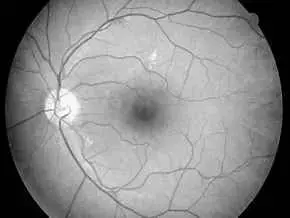- Home
- Medical news & Guidelines
- Anesthesiology
- Cardiology and CTVS
- Critical Care
- Dentistry
- Dermatology
- Diabetes and Endocrinology
- ENT
- Gastroenterology
- Medicine
- Nephrology
- Neurology
- Obstretics-Gynaecology
- Oncology
- Ophthalmology
- Orthopaedics
- Pediatrics-Neonatology
- Psychiatry
- Pulmonology
- Radiology
- Surgery
- Urology
- Laboratory Medicine
- Diet
- Nursing
- Paramedical
- Physiotherapy
- Health news
- Fact Check
- Bone Health Fact Check
- Brain Health Fact Check
- Cancer Related Fact Check
- Child Care Fact Check
- Dental and oral health fact check
- Diabetes and metabolic health fact check
- Diet and Nutrition Fact Check
- Eye and ENT Care Fact Check
- Fitness fact check
- Gut health fact check
- Heart health fact check
- Kidney health fact check
- Medical education fact check
- Men's health fact check
- Respiratory fact check
- Skin and hair care fact check
- Vaccine and Immunization fact check
- Women's health fact check
- AYUSH
- State News
- Andaman and Nicobar Islands
- Andhra Pradesh
- Arunachal Pradesh
- Assam
- Bihar
- Chandigarh
- Chattisgarh
- Dadra and Nagar Haveli
- Daman and Diu
- Delhi
- Goa
- Gujarat
- Haryana
- Himachal Pradesh
- Jammu & Kashmir
- Jharkhand
- Karnataka
- Kerala
- Ladakh
- Lakshadweep
- Madhya Pradesh
- Maharashtra
- Manipur
- Meghalaya
- Mizoram
- Nagaland
- Odisha
- Puducherry
- Punjab
- Rajasthan
- Sikkim
- Tamil Nadu
- Telangana
- Tripura
- Uttar Pradesh
- Uttrakhand
- West Bengal
- Medical Education
- Industry
Higher Homocysteine Linked With diabetic retinopathy In type 2 diabetes Patients

Diabetic retinopathy is a major vascular complication of diabetes mellitus (DM), often leading to low vision and blindness. In a recent study, researchers reported that high homocysteine is associated with nonproliferative diabetic retinopathy in patients with type 2 diabetes.
The study findings were published in the journal Diabetic & Metabolic Syndrome: Clinical Research & Review on December 01, 2021.
A few studies have suggested that the level of plasma and vitreous Hcy is a risk factor for diabetic retinopathy, while others have refuted this link. Therefore, Dr Tomislav Bulum and his team conducted a study to assess the role of plasma homocysteine (Hcy) in the development of nonproliferative diabetic retinopathy (NPDR) in patients with type 2 diabetes (T2DM) without chronic kidney disease.
In this cross-sectional study, the researchers included a total of 94 T2DM patients. They evaluated Hcy, serum 25-hydroxy (25-OH) Vitamin D, vitamin B12, and folate using the CMIA method. They determined NPDR according to the EURODIAB retinal photography methodology and optical coherence tomography (OCT) of the macula.
Key findings of the study:
- When compared to patients without NPDR, the researchers found that the patients with NPDR had longer diabetes duration (p < 0.001), higher Hcy (p < 0.001), lower vitamin B12 (p = 0.028) and lower estimated glomerular filtration rate (eGFR).
- They also found a positive association with NPDE and diabetes duration, HbA1c and Hcy and a negative association with vitamin B12 and eGFR.
- Upon logistic regression analyses, they noted that the diabetes duration (OR = 1.13), Hcy (OR = 1.06, and eGFR (OR = 0.96) were the main predictors of NPDR in T2DM.
- Using stepwise regression analyses, they observed that the best model for predicting Hcy (R2 = 0.104) included vitamins B12 and D.
The authors concluded, "Higher Hcy is associated with NPDR and may play a role as a risk factor for its development in T2DM. Vitamins B12 and D seem to modify this association."
For further information:
Medical Dialogues Bureau consists of a team of passionate medical/scientific writers, led by doctors and healthcare researchers. Our team efforts to bring you updated and timely news about the important happenings of the medical and healthcare sector. Our editorial team can be reached at editorial@medicaldialogues.in.
Dr Kamal Kant Kohli-MBBS, DTCD- a chest specialist with more than 30 years of practice and a flair for writing clinical articles, Dr Kamal Kant Kohli joined Medical Dialogues as a Chief Editor of Medical News. Besides writing articles, as an editor, he proofreads and verifies all the medical content published on Medical Dialogues including those coming from journals, studies,medical conferences,guidelines etc. Email: drkohli@medicaldialogues.in. Contact no. 011-43720751


